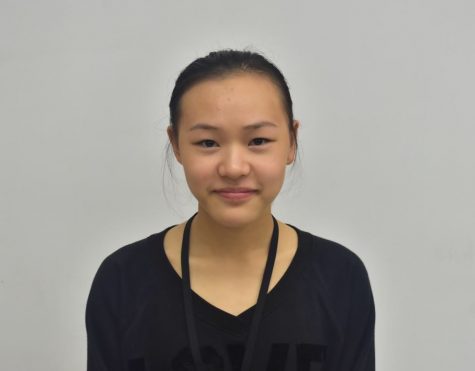Politics in the Classroom: Discussed or Avoided? Student Opinion
December 7, 2016
The presidential election of 2016 has yielded plenty of political discussion in the classroom. Politics, however, can be a sensitive issue, especially due to varying political ideologies. So, does politics belong in the classroom, or should discussion of it be refrained from to avoid controversy?
Junior Betty Aida Rukh-Kamaa, an AP Lang student, said she believes it is important to discuss politics in class “as long as you talk about both sides in a neutral manner.” Rukh-Kamaa also noted that teachers can be significant factors in molding a student’s political views “if [a student’s] political opinions haven’t formed yet.” However, she also stated that classroom political discourse does not affect her own opinions. “I don’t think [teachers] really influence my personal political opinions. Mine are mostly influenced by my parents and family. Teachers might expose me to different perspectives, but my opinions are already deeply rooted, so they’re not going to just change because someone said something.” Rukh-Kamaa said the political curriculum and discussion within her classes are fairly unbiased, explaining that in her assignments, she is required to examine all perspectives and sides of an issue.
AP English Language teacher Ms. Beers said she strongly believes in the role and importance of politics within education. “I think it’s a little bit like religion, where teachers shouldn’t be preaching their own views and imposing them on kids, but I think you should be talking about politics. The job of the teacher isn’t to tell kids what to think, it’s to teach kids how to think, and maybe what they should be thinking about. We want kids to be civically engaged in what’s going on.”
Caleb Wheeler, a sophomore in AP Government, agreed with many of Rukh-Kamaa’s sentiments regarding political discussion within classrooms. “I think [politics] should be debated as much as possible, because understanding the ideals of people and what they look for in a government is something that requires discourse to make sure that everybody has an equal opportunity to express their views.” Like Rukh-Kamaa, he said he does not believe teachers affect his personal political opinions. He does believe, however, that the school curriculum is liberally biased. “There is very little consideration given to the conservative side,” he admitted, recounting previous classroom discussions.
However, he also said, “Personally, I don’t mind if [the curriculum] is tilted one way or the other. All I mind is that when students talk, it’s actually about politics – rather than the candidate they don’t like, or the pop culture surrounding them, I should say.” Wheeler provided an example of the matter: “I noticed that when we were talking about the [presidential] debates, it was more about how childish a candidate was rather than the danger or genius of what they were planning on doing.”



